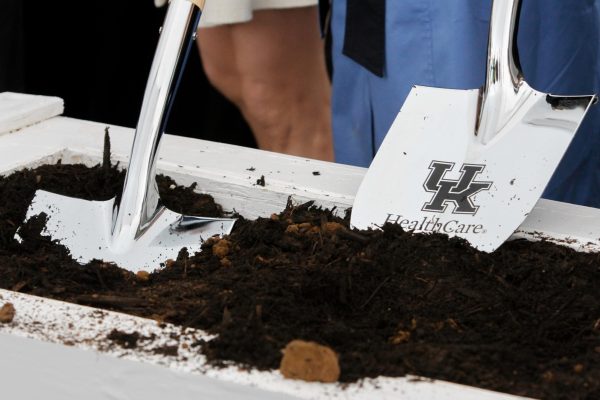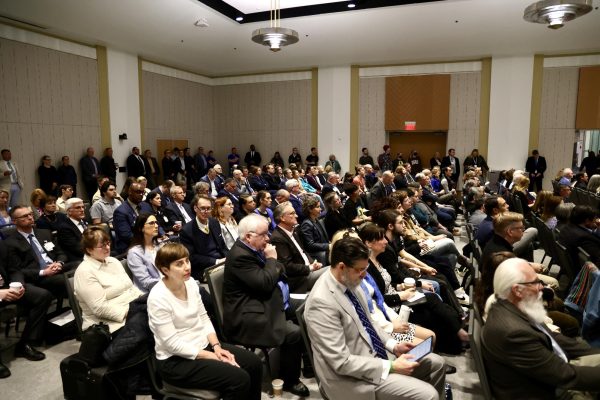New discoveries possible with new energy economy
September 3, 2014
By Anne Halliwell
A multi-department “new energy economy” project that received $24 million from the National Science Foundation and the Kentucky Experimental Program to Stimulate Competitive Research last week could help discover new forms of energy, said chemicals and materials engineering professor and membrane team principal investigator Dibakar Bhattacharyya.
“One of the greatest assets that has helped in this project … is intellectual infrastructure that will create jobs down the road,” Bhattacharyya said. “This job brings people together.”
UK announced Wednesday that Kentucky was one of six states chosen for the five-year NSF grant, which totaled $20 million, for the project, “Powering the Kentucky Bioeconomy for a Sustainable Future.” Kentucky EPSCoR matched $4 million in funding.
About $5 million of the funds will directly support UK faculty, students and staff positions in accessing equipment and research lines, wrote Jeff Mossey, program administrator for the Ky NSF EPSCoR in an email to the Kernel.
Nine other Kentucky research facilities, including the University of Louisville and Kentucky State University, are also sharing in the research project and will receive about $7 million over the next five years.
“It’s supposed to be an investment into research infrastructure in the state,” Mossey said.
Over the next few years, the project will try to develop environmentally friendly, efficient ways to use and store energy and apply their findings to Kentucky industries.
Kentucky already has a coal economy, Bhattacharyya said, but by creating plant-based energy, it may be possible to improve the state’s bio-economy.
The three research pillars are all focusing on energy creation and storage and environmental aspects with crossover from discipline to discipline, Bhattacharyya said.
“This is truly multi-disciplinary work,” Bhattacharyya said.
The chemical-biology research, for example, may focus on breaking down substances found in plants to make chemicals used in alternate forms of energy, Bhattacharyya said. Membranes can be used in this process, or they can filter impurities out of water and air, he added.
The electro-chemical energy storage research is looking for ways to increase batteries’ energy density, or ability to hold a charge for longer, safely and at a lower cost, said Yang-Tse Cheng, a chemical and materials engineering professor and principal investigator for the energy storage team.
The award will support 97 full-time graduate student research assistantships, wrote Mossey, who will be given salaries and paid tuition.
Cheng said the ability to train more graduate students to work in multiple areas of research is crucial for the work that is being done today.
“I think it’ll be good for Kentucky and good for the country,” Cheng said.






















































































































































